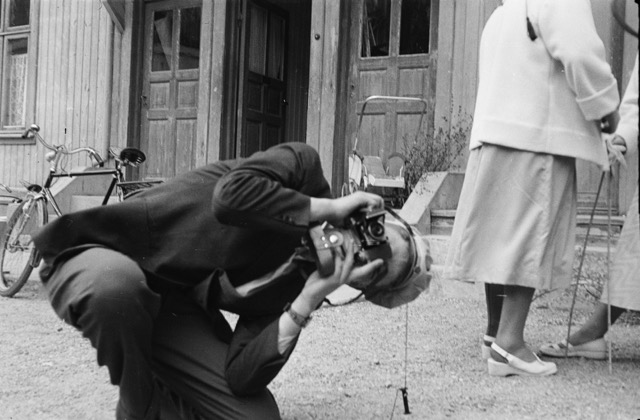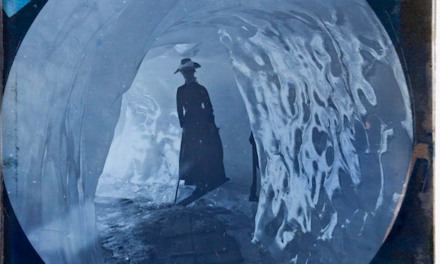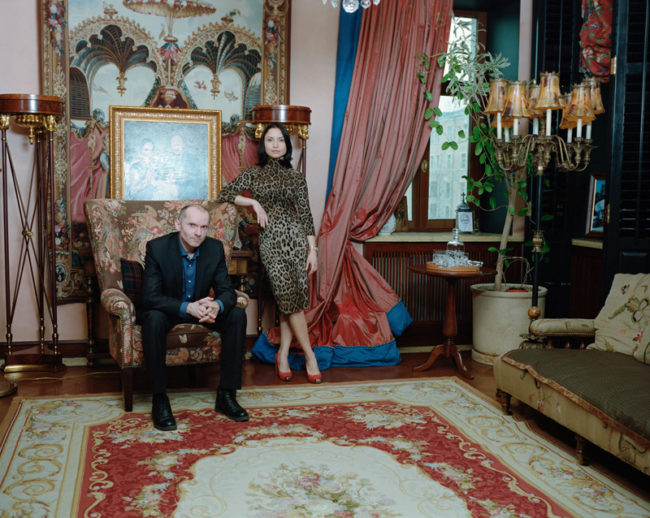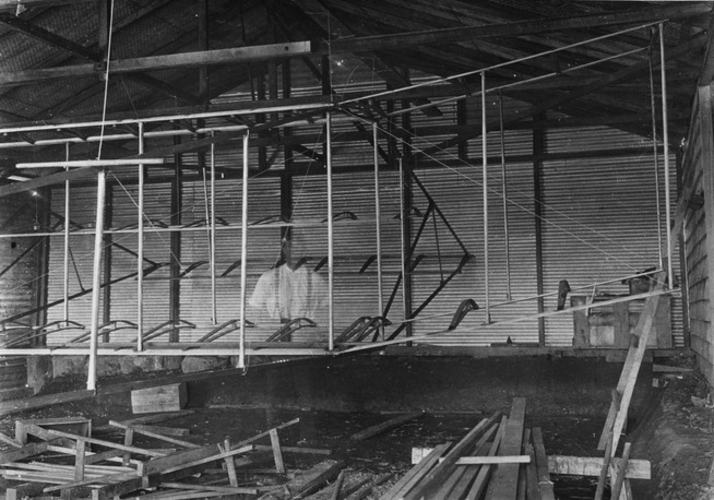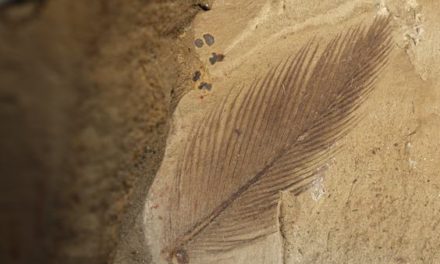17. mai. Elverum. 1954. Russ. Erling, Syringen. Anno Glomdalsmuseet, Elverum.
7:37 at I-Hop
by Samuel Cole
Chuck and I haven’t spoken for ten days. We’ve gone without speaking before, but not for this long. Nor with such outward disdain—or is it called inner pleasure? There was the week Chuck decided to stay in Baton Rouge to work harder the sales convention floor; the rainy week I decided to stay in Colorado and snap a few more photographs of family-summer-fun for the tourism brochure; the stretch of days after my mother had a heart attack and after my father asked if he could move in with us; the week after that when Chuck said, “We’re in no position to take care of your father’s special needs,” and the week after that when I finally phoned my father to tell him, “It’s a super nice assisted living complex. You won’t be alone. You’ll make tons of friends. You’ll love it.” Big moments filled with big circumstances that neither Chuck nor I could articulate with any number of spoken words.
See, generally, we’re idea guys, and respective to our professional fields, we’re pretty successful. Some even call us innovators. Chuck can sell webinar kits to the technologically challenged and sell the technologically challenged on the benefits of webinar kits without using the words webinar and challenged while I can capture through a camera lens images of humanity people often relate to through cheers or tears. We see ourselves as culture class beefing up the Upper West Side. Not that either of us admit it aloud. Or to each other. We’re neither emotional anthropologists who (re)actively dissect human predilections nor the type of men to express our thoughts about weather patterns, political agendas, historical wars, house projects, or who paid what to whom. You know, real life stuff.
There are some days, like the day my mother had a heart attack, when I think I’d like it if Chuck knew more about blue, my favorite color—white is his favorite color—and I think I’d like it if I knew something more about his mother besides her odd nickname, Boots, and the bizarre infatuation she has with a set of leather hardcover books delineating The Rise and Fall of (insert any president here). How unpatriotic. And then there are other days, like the day my father asked if he could move in with us, when I think I’d really like it if Chuck could speak from one corner of his heart—I’ve heard deeply feeling people do this sort of thing—and looking in my eyes, ask me to share a sad moment or two over the last year and what I did or didn’t do to overcome it. I know I can think of two.
And then there are tragic days, like the day I had to tell my father, “It’s a very nice assisted living complex. You won’t be alone. You’ll make tons of friends. You’ll love it,” which we all knew was a lie, when I think I’d really like it if Chuck could sit beside me, maybe hold my hand, and talk late into the evening about our own aging bodies comprised of seventy percent water, one-hundred and twenty-thousand veins, and two-hundred and six bones. Just once, I’d like to share something fascinating with him—did you know oxygenated blood is bright red?—without hearing, “I already knew that.” Maybe we could get into a little tiff before bedtime, maybe call each other a few cruel names—I’ve heard people at the end of frustration do this sort of thing—wrestle with our respective sides of the bed and kiss each other goodnight before wishing the other sweet dreams. Is that too much to ask?
Lately, I’ve been thinking a lot about who I am without Chuck. Ten years cycling through the same routine with the same person feels a lot more like twenty. We’ve been we for so long, I’m not sure I exist anymore. I figure that’s why I’ve been thinking a lot about asking Chuck, “Have you ever felt old, poor, and sad?” I think I’d like it if he whispered the response into my ear—I’ve heard people in love do this sort of thing—and lay naked beside me on the living room floor: stare at the ceiling, play footsie, bask in fusion affection. Then I think I’d be comfortable enough to ask him a follow up question. “Do you believe everyone’s veins are patterned to run blood the exact same way, or are veins, like fingerprints, uniquely different?” I think I’d like it if he put his fingertips on mine, and whispered, “Now at least ours are the same.” Sometimes I really do want to be close to him.
Ten days ago, eating breakfast at I-HOP, just as I was about to take a sip of coffee, Chuck asked, “If you were a fatal disease, what kind would you be and why?”
I dropped the fork. It clanked against the white plate and bounced against the green carpeting. Which is where I left it.
I checked my wrist watch. As a young boy, the ticking of a clock during moments of uneasiness comforted me. My parent’s relationship, much like an outside clothes line, was pulled taut with tension. They sat at the kitchen table, and staring in opposite directions, crunched toast and swallowed scrambled eggs. No good morning. No how did you sleep. No tell me everything about your wildest dreams.
I stared at Chuck, whose usual calm demeanor seemed agitated, the way hot, black coffee changes color, and temperature, when creamer is added. For once, he was asking me a substantive question about human predilections. Very much, in fact, like an emotive anthropologist.
“What did you say?”
Shooing me away, he said, “Just so you know, you’re not a better of a listener than I am.”
The image of my parents seated at the kitchen table crunching toast and swallowing scrambled eggs had grabbed my attention. “Please ask me again.”
“You’re the reason I didn’t want your father to move in with us,” he said. “No one, even him, should be subjected to that much alone time.”
My stomach turned queasy. My heart felt wounded—I’ve heard people with wounded hearts often have queasy stomachs. Now, if we’d have been anywhere else, say at a bookstore reading or a photo gallery, I wouldn’t have been so offended, because I’d have been distracted by class and culture. I’d have simply kept walking and let it go. But because we were sitting and eating at I-HOP, and people we’re starting to stare, I felt the need to defend myself and critique aloud his critique. “You’re being ridiculous.”
“I’m over it.” He stood. “I’m done.”
I sat alone for a very long time.
Fuming in the back seat during the ride home, I decided that outward disdain and inner pleasure are not mutually exclusive but simultaneously unsatisfying, like trying to guess the end of a movie before it even started. I also wanted Chuck to admit he was an unhappy, desperate man who understands very little about himself, or me, or any human predilection. I also wanted to tell him I felt the exact same way. But he didn’t. So I didn’t. And the wheel of silent dysfunction kept on spinning.
Then there are days like this morning, both of us dressing in the same mirror, when I think I’d like it if we stopped snickering and talked openly as adult men about the future and our roles in it. So I began. “I guess I’d be localized gangrene in need of an appendectomy. What about you? Which disease would you be?”
“Final stage of cirrhosis of the liver.” He opened and closed the door, leaving me unable to weep, pack, or text—I’ve heard people under extreme duress often sit motionless in the bathroom—and following the example of my parents: I did nothing at all.
Samuel Cole lives in Woodbury, MN, where he finds work in special event/development management. He’s a poet, flash fiction geek, and political essayist enthusiast. His work has appeared in many literary journals, and his first poetry collection, Bereft and the Same-Sex Heart, was published in October 2016 by Pski’s Porch Publishing. He is also a prize-winning card maker and scrapbooker.

